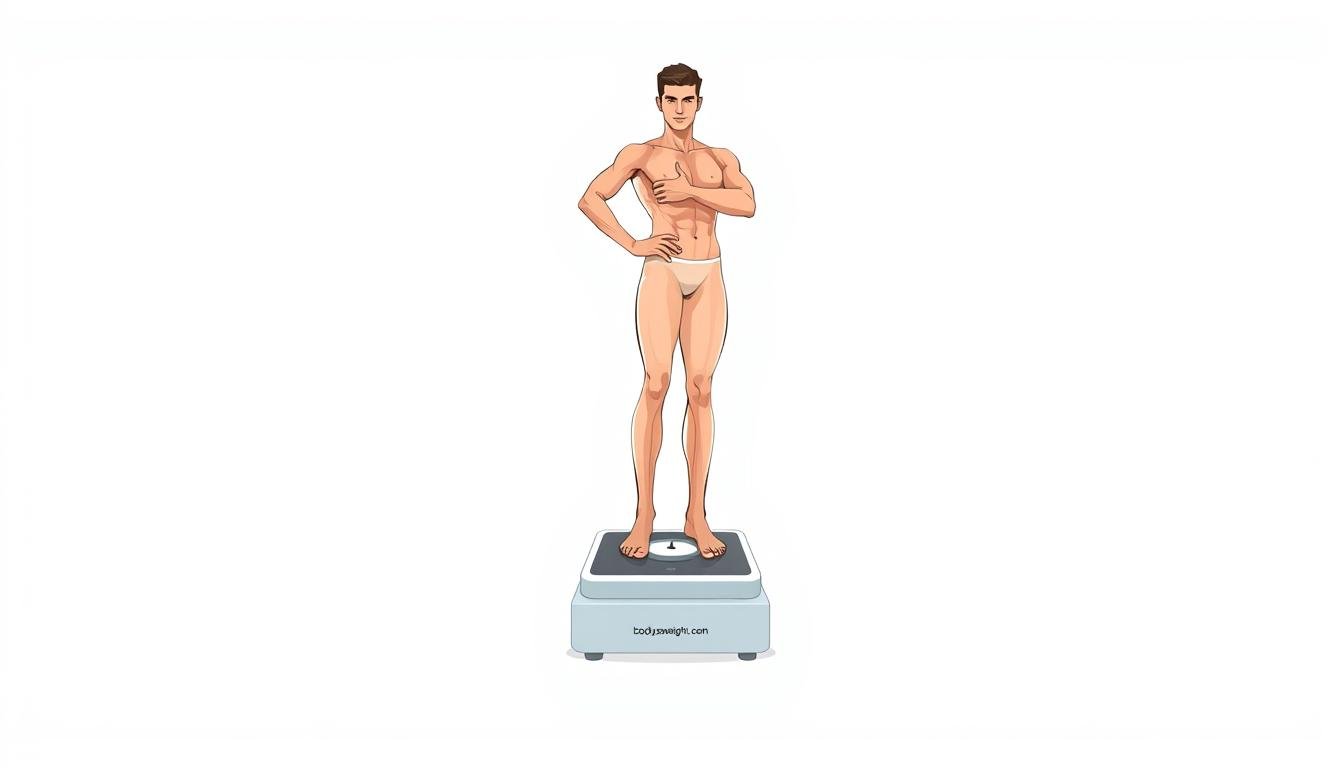Imagine standing on the scale one morning, feeling a wave of excitement wash over you as the number drops. You remember the struggle of losing weight—those countless attempts at shedding pounds that left you feeling exhausted and frustrated. Then, you decide to embark on a new journey: a challenge to lose 10 pounds in a week. With the right knowledge and strategies, you realize rapid weight loss is not just a dream but an achievable goal. By focusing on effective methods like nutrition and exercise, you’ll discover how to slim down quickly and maintain your health while dropping weight fast.
This article will guide you through safe and actionable tips that make it possible to lose weight fast. Let’s dive into the steps you can take to kickstart your weight loss journey!
Key Takeaways
- Set realistic goals to stay motivated.
- Focus on whole foods to improve nutrition.
- Create a caloric deficit for effective weight loss.
- Incorporate exercise regularly to boost results.
- Stay hydrated to aid metabolism.
- Practice mindful eating to reduce emotional eating.
Understanding Safe Weight Loss
Safe weight loss is key to reaching your health goals. Losing 1 to 2 pounds a week is what experts like the CDC suggest. This slow pace helps you find lasting ways to lose weight.
To lose weight safely, you need to eat fewer calories than you burn. Aim for 500 to 750 calories less each day. Avoid quick fixes that can harm your health.
Having a plan is important for safe weight loss. Talking to a doctor can help you get advice that fits you. This way, you can keep losing weight in a healthy way for a long time.
The Importance of Nutrition in Weight Loss
Nutrition is key in your weight loss journey. Eating the right foods is important. Whole foods help you get the nutrients you need and keep you from eating too much.
Focus on Whole Foods for Better Nutrition
Whole foods like fruits, veggies, nuts, and grains are full of nutrients. They have fiber, which makes you feel full. Eating whole foods helps your digestion and health, making it easier to lose weight.
Avoid Processed and High-Calorie Foods
Processed foods have bad fats, sugars, and empty calories. They can stop you from losing weight. Choose whole foods instead. They are better for you and help you lose weight in a healthy way.
Creating a Caloric Deficit
Creating a caloric deficit is key for losing weight. Knowing how many calories you need helps you eat less. You burn more calories than you eat to lose weight. Aim for a 500-calorie deficit each day for a 1-pound loss per week.
How Many Calories Do You Need?
Your daily calorie needs depend on age, gender, weight, and health. For example, a 30-year-old woman needs different calories than a 50-year-old man. Online calculators can help figure this out. You can also use:
- Basal Metabolic Rate (BMR)
- Total Daily Energy Expenditure (TDEE)
- Body composition analysis
Knowing your calorie needs helps you stay in a caloric deficit.
The Role of Activity Levels in Caloric Needs
Activity levels affect how many calories you need. Exercise increases your metabolism, helping you burn more calories. Consider these factors:
- Intensity of Exercise: More intense workouts burn more calories.
- Type of Activity: Cardio and strength training burn calories differently.
- Frequency: Working out more often increases calorie burn.
Choose a mix of exercises that fit your life. This helps you reach your weight loss goals.
Lose 10 Pounds in a Week: Setting Realistic Goals
Setting realistic weight loss goals is key to keeping up your progress and health. It’s tempting to want to lose weight fast. But finding a balance between wanting it and being safe is important.
Starting with goals of 1–2 pounds a week is a good idea. It lets you make steady progress without harming your health.
Break your big fitness goals into smaller steps. This makes it easier to stay motivated and enjoy the journey. Tracking your daily wins helps you feel accomplished on your way to losing weight fast.
Incorporating Exercise Into Your Routine
Adding exercise to your daily life is key to losing weight. It helps burn calories and keeps you healthy. Choosing the right exercises is important for your weight loss journey.
Types of Exercise That Promote Weight Loss
Many exercises help with weight loss. Here are a few:
- Aerobic Exercises: Walking, running, cycling, and swimming raise your heart rate and burn calories.
- Strength Training: Lifting weights builds muscle. Muscle burns more calories than fat, even when you’re resting.
- Flexibility and Balance Exercises: These improve your fitness and lower injury risk, but don’t directly help with weight loss.
Benefits of High-Intensity Interval Training (HIIT)
HIIT is popular for quick weight loss. It mixes short, intense workouts with rest or low-intensity exercises. The HIIT benefits are clear:
- Increased Caloric Burn: HIIT boosts your metabolism even after the workout.
- Time Efficiency: You can get great results in short sessions, ideal for busy people.
- Variety: HIIT can include many exercises, making your routine interesting.
Adding these exercises to your routine is balanced. Regular workouts help you lose weight and get fitter.
The Impact of Intermittent Fasting
Intermittent fasting is a popular way to lose weight. It works by switching between eating and fasting. This helps your body burn fat better.
One way to do it is the 16:8 method. You fast for 16 hours and eat in an 8-hour window. It’s flexible and lets you eat healthy foods.
It’s important to eat well when you can. Choose whole, nutritious foods to stay healthy. Adding exercise to your routine can make fasting even more effective.
Hydration and Its Role in Weight Loss
Drinking enough water is key for losing weight. Water helps your body in many ways. It boosts metabolism, helps absorb nutrients, and can make you feel full.
How Water Affects Metabolism
Drinking water can make your body burn calories faster. It makes sure your body works well. This helps you lose weight better.
Tips for Increasing Water Intake
Drinking more water is easy with a few tips:
- Carry a reusable water bottle to remind you to drink throughout the day.
- Set reminders on your phone to drink water at regular intervals.
- Incorporate water-rich foods into your meals, such as fruits and vegetables.
Finding Support for Your Weight Loss Journey
Starting a weight loss journey can be tough. Getting support can really help. Talking to friends, family, or joining online groups can keep you motivated.
Sharing your journey with others can be very helpful. You get tips and encouragement. It shows you’re not alone in your weight loss quest.
Connecting with Friends and Online Communities
Having people to support you is key. Friends and family can be great, but online groups are special.
These groups let you talk to others facing similar challenges. You can find many places online for weight loss talks. People share their wins and struggles.
Being part of these talks can give you new ideas and keep you going. It helps you through your weight loss journey.
Utilizing Digital Apps for Weight Loss Tracking
Weight loss apps are great for tracking your progress. They let you set goals and track calories. You can even share your wins with others.
These apps are easy to use and keep you on track. They remind you of your goals and celebrate your successes.
Managing Stress and Its Effects on Weight Loss
High stress can make losing weight hard. It often leads to eating unhealthy foods. This can stop you from reaching your weight goals.
Using stress management techniques helps. Mindfulness, meditation, and yoga can change how you think. They help you eat better and feel better about yourself.
Finding ways to deal with stress is key. It helps your mood and weight loss goals. Try deep breathing or hobbies that make you happy.
Relaxation is important for stress and weight loss. It helps your health a lot. Aim for balance to succeed in the long run.

Mindful Eating Practices
Mindful eating helps you notice when you’re hungry and why you eat. It teaches you to listen to your body’s hunger signals. This way, you can eat better and avoid eating too much.
Listening to Your Body’s Hunger Signals
It’s important to know when you’re hungry. Use a hunger scale from 1 to 10 to check. This helps you eat only when you really need to.
Avoiding Emotional Eating
Emotional eating can stop you from losing weight. Learn to tell if you’re hungry or just stressed. Try walking, journaling, or meditating instead of eating when you’re upset. Mindful eating can help you break these habits and feel better. For more tips, check out this guide on mindful eating.
The Importance of Sleep in Weight Management
Sleep is key for managing weight. Good sleep helps you stay healthy. Bad sleep can make you hungry and choose bad foods.
Having a regular sleep schedule is important. It makes you feel better and helps you stick to your diet. Good sleep also helps your body burn calories better. Making your sleep area cozy can help you sleep better and manage your weight.
- Set a consistent bedtime and wake-up time.
- Create a relaxing pre-sleep routine to signal your body that it is time to wind down.
- Avoid screens for at least an hour before bedtime to minimize blue light exposure.
- Maintain a comfortable sleep environment, keeping the room dark and quiet.
Understanding sleep’s role in weight management is crucial. Improving your sleep can greatly help your weight journey.
Identifying and Overcoming Weight Loss Plateaus
Weight loss plateaus can be really tough. They happen when your body stops losing weight. This is often because your body gets used to your diet or workout.
Changing your workout or diet can help a lot. Knowing when to make these changes is key. Consulting experts like nutritionists or trainers can give you great advice.
Consulting Professionals When Needed
If you hit a plateau, getting help from pros can be a game-changer. Dietitians can check your food and find problems. Trainers can suggest new exercises to help you lose weight.
Working with these experts means you get advice made just for you. This can help you get past any weight loss hurdles.

Conclusion
Weight loss is a big job that needs effort in many areas of your life. Eating right, moving often, and drinking enough water are key. These habits help you lose weight and feel better overall.
Don’t just aim for quick wins. Work on making lasting changes that you can keep up every day. Sticking to healthy habits helps you face tough times and stay excited about your progress.
Realizing that losing weight is about more than just the number on the scale is important. It lets you see the bigger picture of getting healthier. With hard work and the right people around you, you can do great things in your weight loss journey.
FAQ
Is it safe to lose 10 pounds in a week?
Losing 10 pounds in a week is not safe. It can lead to health problems like not getting enough nutrients. It’s better to aim to lose 1–2 pounds each week.
What are effective strategies for rapid weight loss?
Good strategies include eating healthy foods and exercising often. Drinking water and managing stress are also key. Intermittent fasting can help if done right.
How do I create a caloric deficit for weight loss?
To lose weight, eat fewer calories than you burn. Aim for a 500-750 calorie deficit each day. This can help you lose 1-2 pounds a week.
What types of exercise should I include in my routine?
Mix aerobic exercises like walking and running with strength training. High-Intensity Interval Training (HIIT) is also good. This mix helps you lose weight fast.
How important is hydration for losing weight?
Drinking water is very important for losing weight. It helps your metabolism and nutrient absorption. Drinking water before meals can also help control how much you eat.
Can stress management help with weight loss?
Yes, managing stress is key. High stress can make you eat more unhealthy foods. Mindfulness and yoga can help you make better food choices.
What are mindful eating practices?
Mindful eating means paying attention to when you’re hungry and why. Using a hunger scale can help you know when to stop eating.
How does sleep impact weight management?
Good sleep is important for managing weight. Not sleeping enough can mess with your hormones and make you hungrier. Getting enough sleep can help you lose weight.
What should I do if I hit a weight loss plateau?
If you’re not losing weight, try changing your diet or exercise. Getting help from dietitians or personal trainers can also help you break through the plateau.
